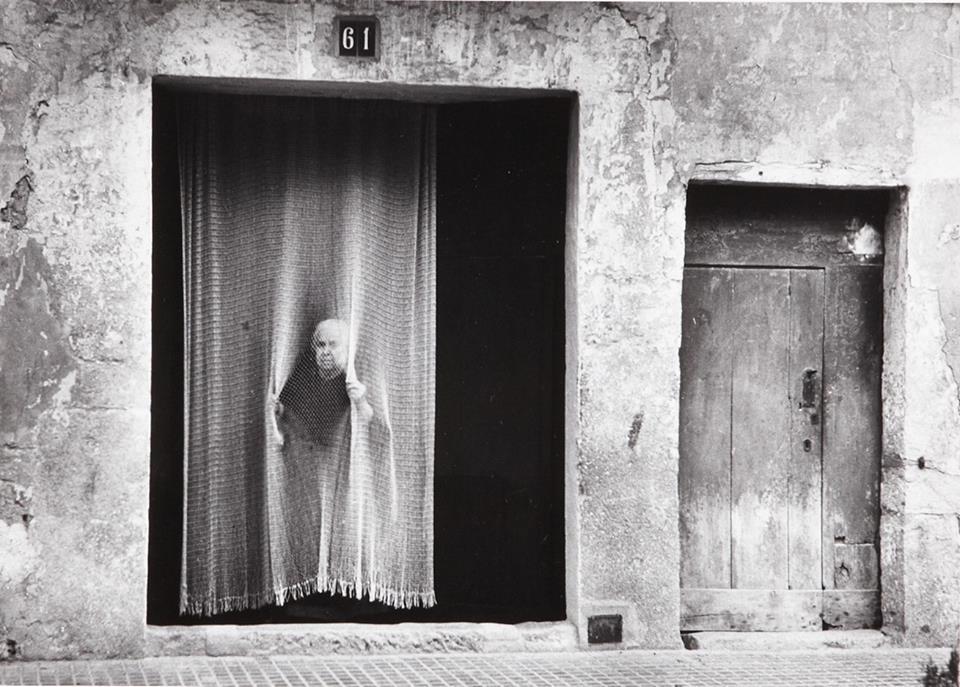
The Czech photographer Josef Sudek left behind a body
of work in which the poetics of the window takes on its full
intensity. A poetics of the window, but also of the pane, of
the clouded pane. At issue here is not simply a journey
around his room, but an immobile journey across this
vaporous and peacefully lachrymal veil. Sudek photographs
branches, trees, barred fences, and houses, each
glimpsed from the window of his studio. The focus is on
that which veils, the cloud upon the pane of glass, and
what one glimpses behind this veil reinforces its indefiniteness.
Sometimes, these are only incoordinate fragments.
But at other times, the landscape, instead of dissolving into
evanescence and blur, is simplified into masses worthy of
an energetic charcoal drawing, and takes on a paramnesic
force of affirmation, as if we had already seen these trees
and these houses, as if we too lived day in day out in front
of them and with them.
Because the frames and sills of the windows do not
appear, but only the pane, with its tears tracing their streaks
sometimes darker, sometimes lighter, the pane itself becomes
like a photographic plate, a photograph to the second power.
The minute precision that the vapor confers upon the vision
of the plane of the glass gives the photograph a certain
mural-like aspect, and the depth beyond that is guessed at is
denied as much as affirmed. Does the clouded pane show us
a fragment of landscape become simpler and more sober, or
is it rather the cloud that shows us the pane, which is to say,
shows us that which normally one does not see? The pane of
glass itself becomes the site where light and shadows write
themselves, and it manifests itself as such. The means of
vision becomes the object of vision. And, in certain of Josef
Sudek’s shots, he alone is given to be seen.
The relations of interior and exterior are thus powerfully
disturbed. As a general rule, the function of a pane of glass
is at the same time to unite and to distinguish interior and
exterior: it allows being inside and outside all at once, seeing
the exterior while remaining in the interior. The vapor
veils this transparency, makes a curtain of the pane, and
thus, in a certain way, closes the interior upon itself. But in
Sudek’s work, nothing of this interior space appears, not
even a sill or a frame, and the interior is no longer a
dwelling place, but only a wide-open gaze, pure vision.
And the veiled exterior, glimpsed with difficulty, is laden
with a patient, slow secret. Hasn’t the exterior become intimate,
while the interior is no more than a gaze outside of
itself, passed entirely into what it sees? Sudek shows tears
that unveil, tears belonging to no one upon the humble surface
of windowpanes. These are not yet elementary tears,
cosmic tears. Is there such a thing?
Jean-Louis Chrétien, Hand to Hand, pp. 153-4
photo: Josef Sudek
.
.


